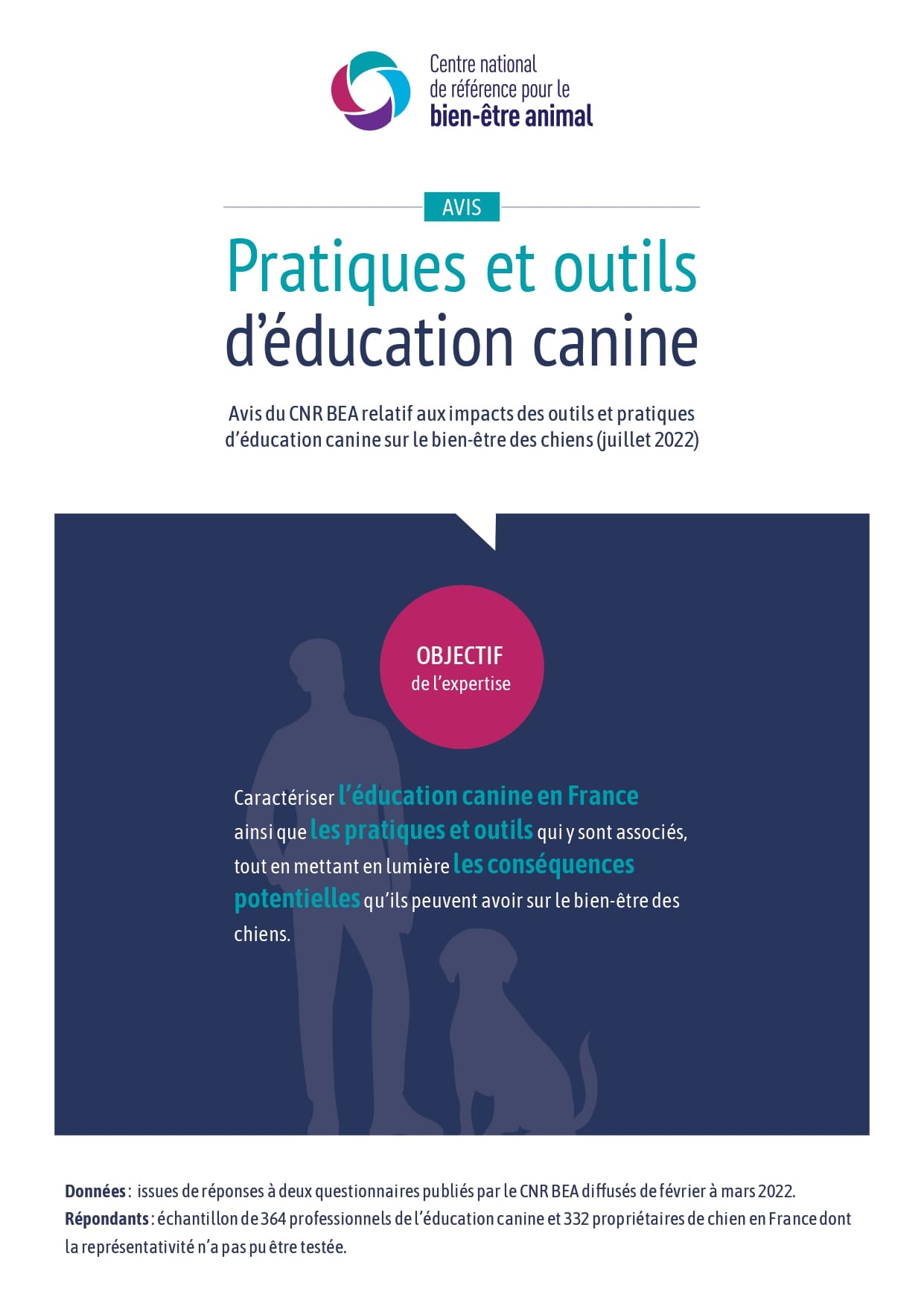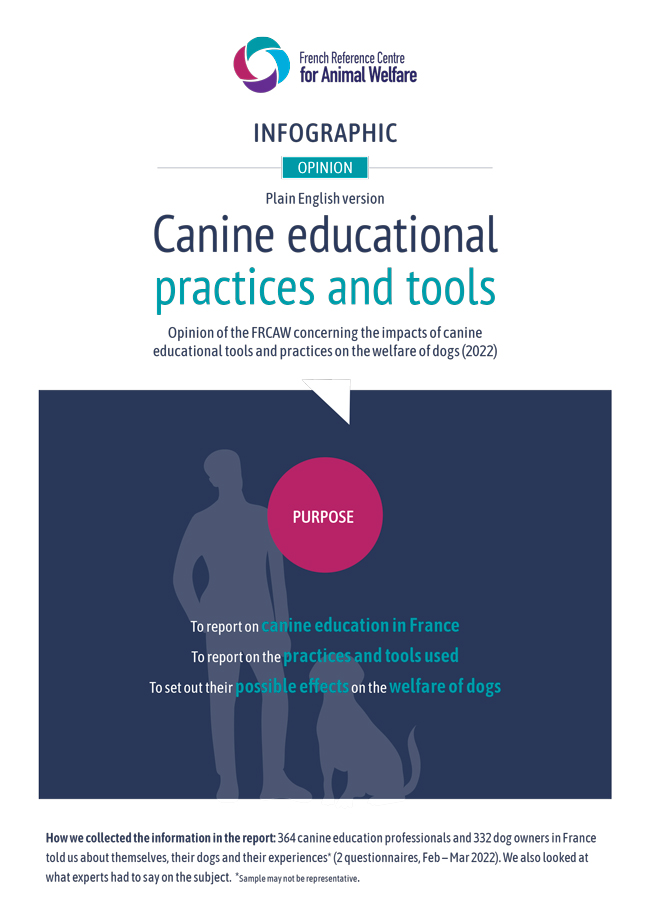Full title: Opinion of the FRCAW on canine educational practices and tools and their impact on the welfare of dogs
Requested by: Animal Welfare Office/DGAL - French Ministry of Agriculture and Food
Date of request: 26/02/2021
Delivery date: 04/07/2022
DOI: 10.17180/z1s3-t186
Context
At the start of 2020, the French Minister for Agriculture and Food announced 15 measures to strengthen the fight against animal abuse. Nearly all focused on farm animals, but in one measure, the parliamentary representative Loïc Dombreval was tasked with a mission to propose pathways for the improvement of the welfare of companion animals and equids. One of Deputy Dombreval’s recommendations was the creation of an ongoing list of educational and training practices that should be banned.
In view of this, the BBEA asked the FRCAW to evaluate training methods for dogs and the suffering or stress that they can cause.
In response, the FRCAW proposed that it should identify and examine the potential causes of pain and stress linked to the chief methods (and associated tools) employed for the education of dogs in France, along with the consequences of these practices for the welfare and behaviour of dogs. It also proposed to identify the available preventive measures to reduce the risks associated with canine educational practices.
The request was addressed in three parts:
1. A mapping exercise to establish the main educational tools and practices employed in France for dogs.
2. An examination of factors affecting the welfare of animals and their consequences for animal welfare.
3. A general assessment of tools and practices (advantages/disadvantages) and their conditions of use.
Main conclusions of the FRCAW
Recommendation 1: The FRCAW recommends that standards for the training of canine professionals should be identified and characterised. Guidelines for training advisors based on animal welfare could also be defined. Should it be impossible to achieve this harmonisation of training, an ‘animal welfare’ label could a minima be awarded to training programmes where standards conform to a specified framework, to be devised, for the respect of animal welfare.
Recommendation 2: The FRCAW recommends that the findings of this report (a view of human-animal relationships based on companionship, the infrequent use of tools and practices associated with negative methods, the adaptation of the work of the professional to the individual dog) be confirmed through representative samples and/or observations on the ground before any conclusive picture of the canine educational landscape in France is proposed.
Recommendation 3: The FRCAW places strong emphasis on the importance of taking account of a dog’s emotions with regard to the use of any practice or tool, so that any negative emotions in the dog can be minimised as far as possible. In this sense, it should be an absolute requirement that any action taken for the purpose of canine education must be adapted to each individual.
Recommendation 4: The FRCAW recommends that the following studies should be conducted following the present expertise:
- a similar expertise on the practices and tools not dealt with in this report, in particular those used in training for particular purposes such as hunting and biting
- observations on the ground, to fill the gaps in the scientific literature and to provide improved characterisations of the contexts in which practices and tools are employed during a canine education class
- an assessment of the welfare of demonstration dogs and dogs used for purposes of control in canine education
- a characterisation of the contexts of use for canine educational tools and practices outside canine education classes (directly by the owners). It would in fact appear that the majority of French citizens who use an electric collar (71.8%) do so without consulting a canine professional (Masson et al., 2018).
Recommendation 5: The FRCAW recommends that the relationship between a dog’s degree of motivation to participate in canine educational sessions and its postures/behaviours during the sessions should be confirmed through observations on the ground.
Further, the behaviours associated with negative (and positive) emotions in dogs should be known by all canine professionals and owners of dogs, so that a dog’s attendance at education classes can be suspended when it exhibits several of these behaviours. To this end, analysis of such behaviours could be included in the training requirements for professionals and awareness-raising information sheets on the subject could be produced for dog owners.
Recommendation 6: The FRCAW recommends that the practices employed by puppy schools should be studied in order to ensure that their influence on a puppy’s socialisation and familiarisation is a positive one. If this is found to be the case, attendance at such establishments could be entirely beneficial to the development of these animals.
Recommendation 7: The FRCAW strongly emphasises the importance of choosing canine educational practices and tools associated with positive methods.




